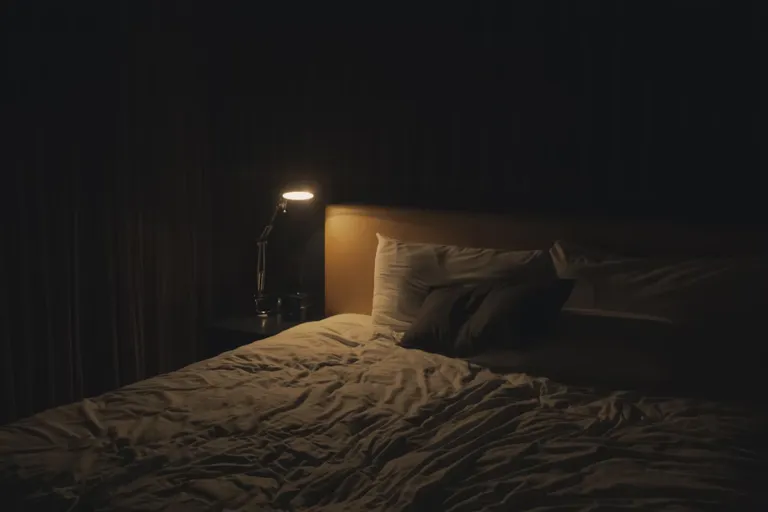Key Points
- Sleep problems affect nearly one-third of U.S. adults and carry significant health risks.
- Natural remedies—such as relaxation practices, lifestyle adjustments, and herbal supplements—may improve sleep without the risks of dependency.
- Sleeping pills can provide short-term relief but are not considered a sustainable long-term solution.
- The most effective strategy often combines behavioral solutions with guidance from a health professional.
The Nightly Struggle
You’ve likely had nights where your body felt tired but your mind refused to quiet down. For millions of Americans, this isn’t an occasional inconvenience—it’s a chronic problem. According to the Centers for Disease Control and Prevention, about 1 in 3 adults regularly experience short sleep, which increases the risk of heart problems, anxious thoughts, and impaired focus at work [1].
The dilemma is clear: when faced with nights of restless tossing and turning, should people reach for natural solutions or rely on a prescription pill? The answer lies in understanding the benefits—and the pitfalls—of each approach.
Why Sleep Matters More Than We Think
Sleep is far more than a nightly recharge. It’s the foundation of memory, immunity, hormone regulation, and emotional balance. When sleep problems become persistent, the impact ripples across daily life—ranging from strained relationships and irritability to a higher likelihood of chronic tiredness, blood sugar regulation problems, and even dementia risk later in life [2].
For caregivers and professionals alike, poor sleep is more than fatigue—it’s a public health issue. Left unmanaged, sleep disruption increases workplace errors, accident risk, and reliance on caffeine or alcohol as coping tools.
Common Challenges and Daily Impact
People with ongoing sleep problems often describe:
- Restlessness at night: Inability to “shut off” mentally, despite exhaustion.
- Daytime consequences: Daytime sleepiness, reduced productivity, or difficulty focusing.
- Emotional toll: Heightened irritable moods and anxious thoughts.
- Coping behaviors: Overuse of stimulants during the day or dependence on alcohol to “wind down” at night.
These challenges reinforce a frustrating cycle: poor sleep leads to more stress, and more stress worsens sleep.
The Science Behind Sleep and Its Disruption
At its core, sleep is governed by two biological systems:
- The circadian rhythm—our internal clock that signals when to feel alert or drowsy.
- The sleep drive—a buildup of adenosine in the brain that makes us feel progressively tired.
Stress, blue light exposure, late-night eating, and irregular schedules all interfere with these systems [3]. Over time, the brain’s natural rhythms can become misaligned, fueling persistent problems.
Natural Remedies: Gentle but Gradual
Many people prefer to start with natural solutions, which aim to restore the body’s rhythms without pharmaceutical intervention.
- Relaxation techniques: Mindfulness meditation, deep breathing, or progressive muscle relaxation can calm the nervous system and reduce anxious thoughts [4].
- Sleep hygiene: Simple changes like keeping a consistent bedtime, avoiding caffeine in the afternoon, and limiting screen exposure before bed can yield noticeable improvements.
- Herbal and dietary supplements: Melatonin is one of the most widely studied supplements, often effective for regulating circadian rhythm shifts (such as jet lag). Valerian root and chamomile have shown some promise, though results vary [5].
- Lifestyle adjustments: Regular exercise (but not too close to bedtime) and a sleep-conducive environment—cool, dark, and quiet—support better rest.
Natural approaches tend to work gradually and require consistency. While generally safe, supplements can interact with medications, underscoring the importance of consulting a health professional before starting.
Sleeping Pills: Quick Fix or Risky Habit?
Sleeping pills—often prescribed for short-term relief—include benzodiazepines, “Z-drugs” such as zolpidem, and antihistamine-based over-the-counter options. They work by slowing brain activity, making it easier to fall and stay asleep.
Benefits:
- Fast-acting relief for acute sleep disruption.
- Can help break short-term cycles of sleeplessness.
Risks:
- Potential for dependency and withdrawal symptoms.
- Side effects such as dizziness, memory impairment, or grogginess the next day [6].
- Reduced effectiveness over time.
- Association with higher fall risk in older adults.
Health authorities emphasize that these medications should generally be used for short durations, not as a nightly routine [7].
Comparing the Two Approaches
When evaluating natural remedies versus sleeping pills, research suggests:
- Natural remedies are safer for long-term use but require patience and habit change.
- Sleeping pills may help in urgent situations but are best reserved for short-term management due to risks of dependency and side effects.
An evidence-based review by the American Academy of Sleep Medicine recommends behavioral therapies, such as cognitive behavioral therapy for sleep problems (CBT-I), as the gold standard for long-term management [8].
Toward Sustainable Sleep Health
For most people, the most effective path forward combines strategies:
- Adopt healthy sleep habits (consistent schedule, calming routines).
- Use relaxation or mindfulness tools for stress reduction.
- Consider natural supplements with professional guidance.
- Reserve sleeping pills for short-term or emergency use, under strict supervision.
The goal is not just falling asleep tonight, but maintaining restorative rest for the years ahead.
Conclusion
Whether you lean toward natural remedies or prescribed pills, the key is to approach sleep problems as more than a nightly nuisance—they are a signal from your body. Natural solutions may take time but offer sustainability, while sleeping pills can provide temporary relief at the cost of long-term risk.
The wisest path often lies in balance: adopting lasting sleep-friendly habits, using supplements with care, and consulting a health professional when deeper issues persist.
The article does not in any way constitute as medical advice. Please seek consultation with a licensed medical professional before starting any treatment. This website may receive commissions from the links or products mentioned in this article.
Subscribe for Free for more insightful health articles tailored to your needs.
References
- Centers for Disease Control and Prevention. (2022). Short Sleep Duration Among US Adults. https://www.cdc.gov
- Walker, M. (2017). Why We Sleep. Scribner.
- National Institute of Neurological Disorders and Stroke. (2023). Brain Basics: Understanding Sleep. https://www.ninds.nih.gov
- Black, D.S., & Slavich, G.M. (2016). Mindfulness meditation and sleep quality. Annals of the New York Academy of Sciences.
- Bent, S., et al. (2006). Valerian for sleep: a systematic review. American Journal of Medicine.
- Glass, J., et al. (2005). Sedative hypnotics in older people: systematic review. BMJ.
- U.S. Food & Drug Administration. (2022). Sleep Disorder (Sedative) Medications. https://www.fda.gov
- American Academy of Sleep Medicine. (2021). Behavioral and psychological treatments for sleep problems. https://aasm.org
- Pankowska, M. M., Lu, H., Wheaton, A. G., Liu, Y., Lee, B., Greenlund, K. J., & Carlson, S. A. (2023). Prevalence and geographic patterns of self-reported short sleep duration among US adults, 2020. Preventing Chronic Disease, 20, E53. DOI: https://doi.org/10.5888/pcd20.220400
- Sabia, S., Fayosse, A., Dumurgier, J., van Hees, V. T., Paquet, C., Dugravot, A., … & Singh-Manoux, A. (2021). Association of sleep duration in middle and old age with incidence of dementia. Nature Communications, 12(1), 2289. DOI: https://doi.org/10.1038/s41467-021-22354-2
- Yeom, J. W., & Cho, C.-H. (2024). Herbal and natural supplements for improving sleep: A literature review. Psychiatry Investigation, 21(8), 810–821. DOI: https://doi.org/10.30773/pi.2024.0121
- Gong, H., Ni, C. X., Liu, Y. Z., Zhang, Y., Su, W. J., Lian, Y. J., Peng, W., & Jiang, C. L. (2016). Mindfulness meditation for insomnia: A meta-analysis of randomized controlled trials. Journal of Psychosomatic Research, 89, 1–6. DOI: https://doi.org/10.1016/j.jpsychores.2016.07.016
- Ruan, J. Y., Liu, Q., Chung, K. F., Ho, K. Y., & Yeung, W. F. (2025). Effects of sleep hygiene education for insomnia: A systematic review and meta-analysis. Sleep Medicine Reviews, 82, 102109. DOI: https://doi.org/10.1016/j.smrv.2025.102109
- Glass, J., Lanctôt, K. L., Herrmann, N., Sproule, B. A., & Busto, U. E. (2005). Sedative hypnotics in older people with insomnia: Meta-analysis of risks and benefits. BMJ, 331(7526), 1169. DOI: https://doi.org/10.1136/bmj.38623.768588.47
- Edinger, J. D., Arnedt, J. T., Bertisch, S. M., Carney, C. E., Harrington, J. J., Lichstein, K. L., … & Heald, J. L. (2021). Behavioral and psychological treatments for chronic insomnia disorder in adults: An American Academy of Sleep Medicine clinical practice guideline. Journal of Clinical Sleep Medicine, 17(2), 255–262. DOI: https://doi.org/10.5664/jcsm.8986
- Alam, M., Abbas, K., Sharf, Y., & Khan, S. (2024). Impacts of blue light exposure from electronic devices on circadian rhythm and sleep disruption in adolescent and young adult students. Chronobiology in Medicine, 6(1), 10–14. DOI: https://doi.org/10.33069/cim.2024.0004
- Xie, Y., Liu, S., Chen, X. J., Yu, H. H., Yang, Y., & Wang, W. (2021). Effects of exercise on sleep quality and insomnia in adults: A systematic review and meta-analysis of randomized controlled trials. Frontiers in Psychiatry, 12, 664499. DOI: https://doi.org/10.3389/fpsyt.2021.664499




“I’d never heard of CBT-I before. Interesting that behavior changes can work better than pills long term
I’ve used sleeping pills before, but I like the reminder that they’re better as short-term tools, not a forever solution.